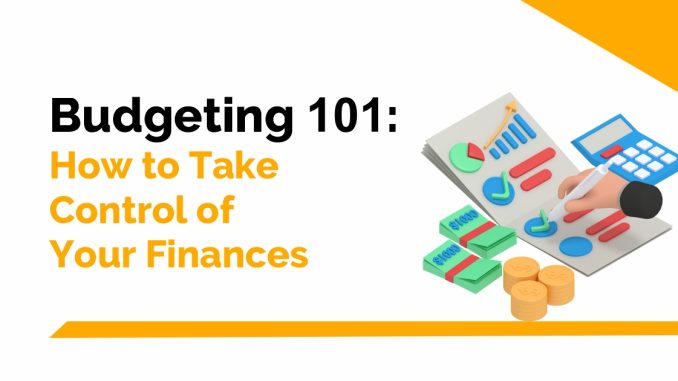
Taking control of your finances can feel daunting, especially when you’re unsure where to start. But budgeting is a powerful tool that can help you manage your money, achieve your financial goals, and reduce stress. In this article, we’ll explore the fundamentals of budgeting, provide practical tips, and highlight the benefits of a well-planned budget. Whether you’re just starting out or looking to refine your approach, this guide will set you on the path to financial stability.
What is Budgeting?
Budgeting is the process of creating a plan for your money. It involves tracking your income, categorizing expenses, and allocating funds for various needs and wants. A budget helps you understand where your money goes and ensures that you’re spending within your means.
The Benefits of Budgeting
- Financial Clarity: A budget provides a clear picture of your financial situation. It shows how much money you have coming in and where it’s going out, helping you make informed decisions.
- Debt Reduction: By tracking your expenses, you can identify areas where you can cut back and allocate more funds toward paying off debt. This proactive approach can accelerate your journey to financial freedom.
- Savings and Investment: Budgeting helps you set aside money for savings and investments. Whether you’re building an emergency fund, saving for a big purchase, or planning for retirement, a budget ensures you’re on track.
- Stress Reduction: Knowing that you have a plan for your finances can alleviate anxiety and provide peace of mind. A budget gives you control over your money rather than letting it control you.
Steps to Create a Budget
- Track Your Income: Start by listing all your sources of income, including your salary, freelance work, side hustles, and any other sources. Knowing your total income is the foundation of your budget.
- List Your Expenses: Categorize your expenses into fixed and variable costs. Fixed expenses, such as rent or mortgage, utilities, and insurance, are consistent each month. Variable expenses, like groceries, entertainment, and dining out, can fluctuate.
- Set Financial Goals: Identify short-term and long-term financial goals. Short-term goals might include saving for a vacation or a new gadget, while long-term goals could involve buying a house or building a retirement fund.
- Allocate Funds: Assign a specific amount of money to each category of expenses. Be realistic and prioritize essential expenses. Consider using the 50/30/20 rule: allocate 50% of your income to needs, 30% to wants, and 20% to savings and debt repayment.
- Track and Adjust: Regularly monitor your spending and compare it to your budget. If you notice overspending in certain areas, adjust your budget accordingly. It’s essential to be flexible and make changes as needed.
Tips for Successful Budgeting
- Use Budgeting Tools: Utilize apps and software to simplify the budgeting process. Tools like Mint, YNAB (You Need A Budget), and PocketGuard can help you track expenses and stay on top of your finances.
- Automate Savings: Set up automatic transfers to your savings account to ensure you consistently save money. Automating your savings can help you stay disciplined and build your savings effortlessly.
- Review Regularly: Revisit your budget at least once a month. Life changes, and so do financial situations. Regular reviews allow you to adjust your budget and stay on track with your goals.
- Cut Unnecessary Expenses: Identify and eliminate expenses that aren’t adding value to your life. Whether it’s a subscription you rarely use or dining out too often, cutting back on unnecessary costs can free up more money for your priorities.
- Stay Motivated: Set milestones and celebrate small victories along the way. Whether it’s paying off a credit card or reaching a savings goal, acknowledging your progress can keep you motivated.
Conclusion
Budgeting is more than just numbers on a spreadsheet; it’s a powerful tool for taking control of your finances and achieving your goals. By tracking your income and expenses, setting clear financial objectives, and making informed decisions, you can build a secure and prosperous future. Remember, budgeting is a skill that improves with practice. Start today, and take the first step toward financial empowerment.
Leave a Reply